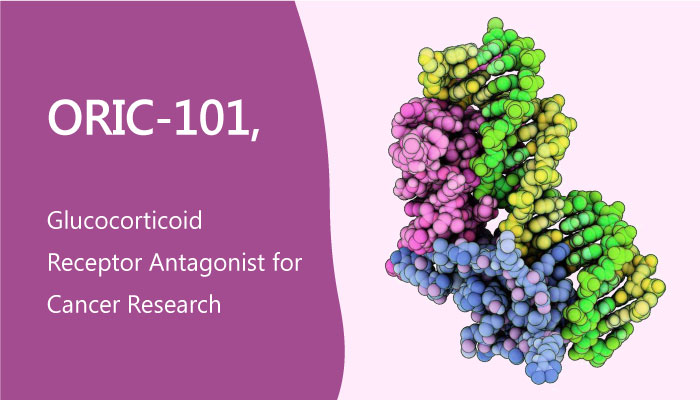The glucocorticoid receptor (GR) is a nuclear receptor, with the synonym of NR3C1. The receptor exhibits almost all cells of the body, regulates genes. And the latter ones control the development, metabolism, and immune response. In addition, cortisol and other glucocorticoids bind to the receptor, regulate gene transcription. Once the GR signaling is dysregulated, pathological states may happen. The states includes cancer, obesity, Cushing’s syndrome and psychotic depression
Recent studies also showed that, increased GR protein levels exhibit in cancer patients. These indicate inhibition of glucocorticoid receptor may play an important role in cancer therapy.
Subsequently, Yosup Rew, et al carried out a study on the activity of glucocorticoid receptor antagonists against cancer.

In the beginning, they screened a series of compounds, found out compound 28 is most promising, with the name of ORIC-101. ORIC-101 is a highly potent antagonist of the steroidal glucocorticoid receptor. The IC50 value is 5.6 nM. ORIC-101 weakly antagonizes AR, with an IC50 of 484 nM in AR luciferase assay. However, it has no obvious agonistic effect on AR (IC50, >2.5 μM) or inhibitory activity on cytochrome P450. Moreover, ORIC-101 displays an IC50 of 21 nM for PR.
In a further study, researchers evaluate the pharmacokinetic (PK) profile in different animal species. ORIC-101 has moderate clearance and acceptable oral bioavailability in rats, low clearance, and reasonable oral bioavailability in mice and minipig.
What’s more, ORIC-101 dramatically increases the antitumor activity of chemotherapy.
Thus, ORIC-101 is a good choice in anti-cancer research; it enhances the efficacy of chemotherapeutics. More efforts need to be done to prove the potential in cancer treatment.
Reference:
1. Rew Y, et al. J Med Chem. 2018 Sep 13;61(17):7767-7784.